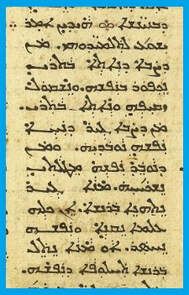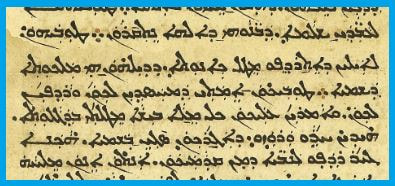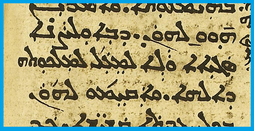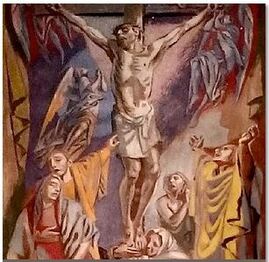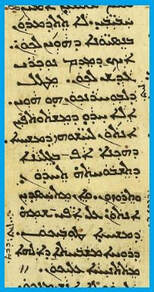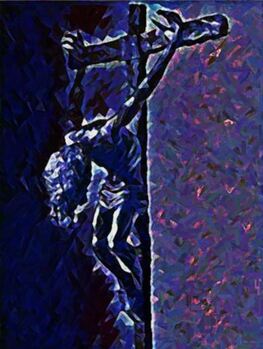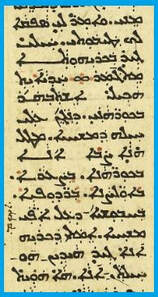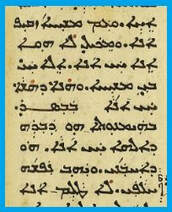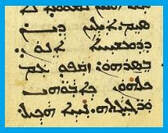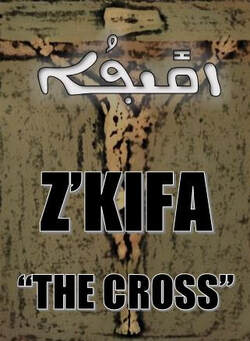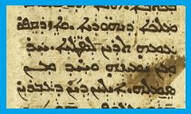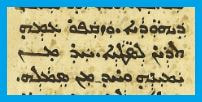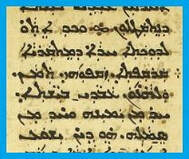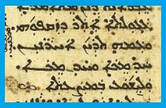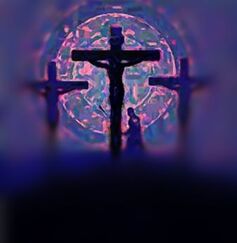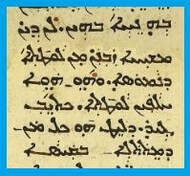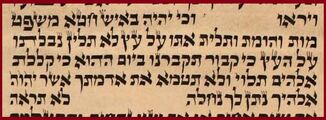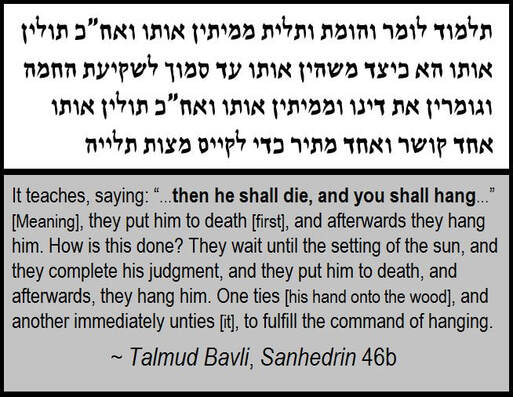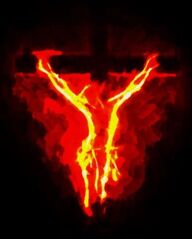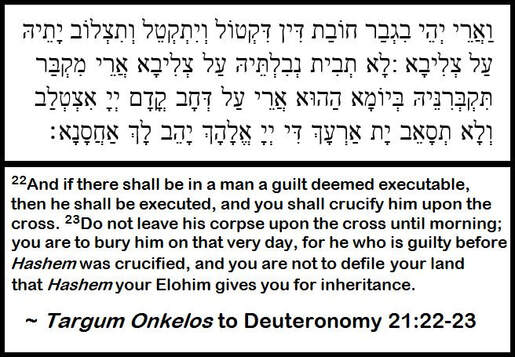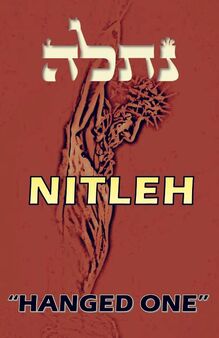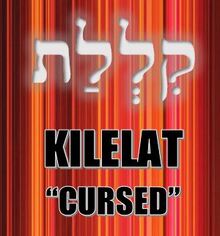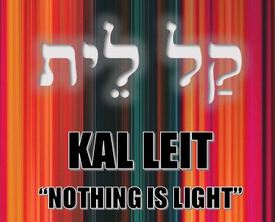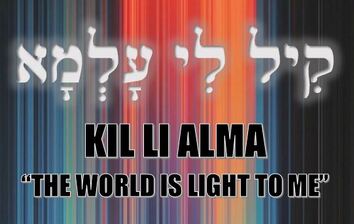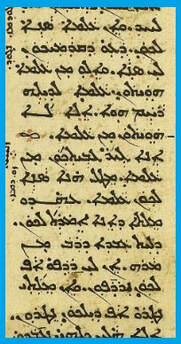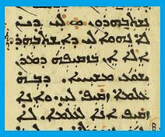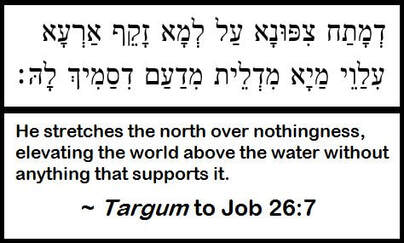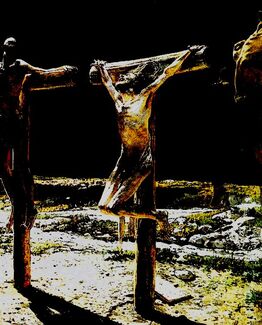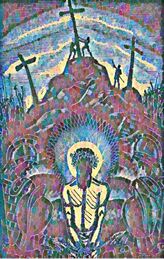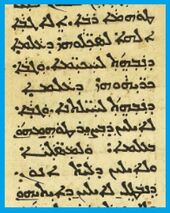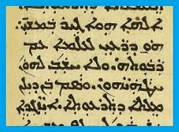CRUCIFIED WITH THE CURSED
by Jeremy Chance Springfield
4/4/2023
For a person to follow the Messiah means they will encounter hardships and difficulties not experienced by those outside the faith. The Messianic mindset is one where the focus is not on making this life carefree and comfortable, but rather, on preparing ourselves for the coming Kingdom as much as possible. This requires a commitment to the cause espoused by Yeshua: living the hope of the future Kingdom amidst a present world of lawlessness.
|
An entire planet stands opposed to the spiritual realities of a world run by righteousness, yet it is our calling to live a life that will bring those wicked people into His Kingdom by providing them a merit-filled Messiah to whom they can attach and find redemption. The enmity of the world is very real, as everything it promotes pushes people further from the realization of the Creator’s dream for a reality where all are unified in purpose and praise before Him.
|
A life of attachment to the Messiah is thus not easy.
But it is worth every moment.
Yeshua made this clear with the powerful and sobering declaration in Matthew 10:38-39.
But it is worth every moment.
Yeshua made this clear with the powerful and sobering declaration in Matthew 10:38-39.
This sentiment is echoed later in another scenario, where Yeshua proclaimed in Matthew 16:24-26 an even stronger assertion of the above.
|
24 Then Yeshua said to his students, “He who desires that he come after me shall reject himself, and shall lift up his cross, and come after me.
25 For he who desires that his soul shall live shall lose it, and he who loses his soul on account of me shall find it. 26 For what shall a son of man benefit, if all the world he acquires, and his soul is missing? Or what shall a son of man give in place of his soul? |
The believer must focus on the purpose of a life linked to the Messiah. It is not one of personal glory or esteem, but one where we must be daily willing to lay aside the desires of the flesh and move instead with the mindset of sacrifice. Yeshua uses the imagery of a believer lifting up a cross and following after Him to color the notion with the grim context in which life will be lived if undertaken with a Messianic mentality.
His people will look and act different than those still enchained to the tomb of this earth, and those actions are an inevitable judgment that the world’s wickedness is unacceptable. The journey to that place of self-sacrifice is not always pleasant, but when it is uncomfortable, we can remind ourselves that we will be blessed for our commitment in taking up His cross and connecting to Him, as Yeshua explained in Matthew 5:10-12.
His people will look and act different than those still enchained to the tomb of this earth, and those actions are an inevitable judgment that the world’s wickedness is unacceptable. The journey to that place of self-sacrifice is not always pleasant, but when it is uncomfortable, we can remind ourselves that we will be blessed for our commitment in taking up His cross and connecting to Him, as Yeshua explained in Matthew 5:10-12.
12 Then you must be joyful, and rejoice that your reward is great in the heavens, for thus they persecuted the prophets who were before you.
Being joyful in hardships is easier said than done. The natural response is to get away from the source of the hurt, but the believer is called instead to a live a life that continues toward the trouble, for in that dark direction lay a reality of our faith that cannot be ignored.
This reality is preserved in the words of Acts 14:22.
This reality is preserved in the words of Acts 14:22.
Persistence in the journey to Golgotha is what every follower of Messiah needs, for His footsteps lead to no other place than that mortifying mount. If we can maintain the notion that such is our goal in this life, then the persecutions and insults of the world can be endured. The strength to rejoice exists even in the worst of responses to our faith; the opposition of the wicked becomes a reminder that we are sharing in the sufferings first experienced by Yeshua, and those sufferings have a purpose beyond the flesh and blood which they so powerfully test.
One of Yeshua’s own students who was himself tested in astounding ways shares the encouragement to continue despite the difficulties to come, recorded in 1st Peter 4:12-14.
|
12 My beloved, do not marvel at the tests that are for you, as that a strange thing occurred to you, on account that they were for your examination.
13 But, you must rejoice that you are partners of the sufferings of the Messiah, that thus even in the revelation of his glory you shall rejoice and exalt. 14 And if you are reviled concerning the presence of the name of the Messiah, you are blessed, for the Spirit of the glory of Alaha rests upon you. |
The path of persecution is hard enough as it is, but the journey is not the destination, and arrival at the site means self-sacrifice in a way we cannot understand when we first set foot on that road. The cross we carry elicits scorn and shame along the way, but reaching the Place of the Skull puts the mortal danger in which we exist as His followers in proper context.
The place of the cross is the place of death.
Perhaps more so than any other follower of Messiah whose faith experience is recorded in the New Testament texts, the apostle Paul stands out as particularly unique in what he underwent as a Messianic missionary. While the majority of Yeshua’s initial students were men of lowly positions or standardized trades in which their futures were secure, only to be elevated as disciples of the greatest rabbi who ever lived, Paul was forcibly removed from his already exalted position as the son of a multi-generational Pharisee, and instead thrown into the arena of persecution to prove his loyalty to the revelation so graciously given him by Yeshua.
He accepted that agony and even embraced it after some time, as we see in his words recorded in 2nd Corinthians 12:8-10.
He accepted that agony and even embraced it after some time, as we see in his words recorded in 2nd Corinthians 12:8-10.
|
9 And He said to me, “Sufficient for you is My goodness, for My power in weakness is perfected. Joyously, therefore, I shall boast in my weaknesses, that upon me the power of Messiah shall dwell.
10 On account of this, I am accepting in weaknesses, in dishonor, in afflictions, in persecution, in captivity, that are concerning the presence of Messiah, for when I am weak, then I am strong. |
Paul’s zealous insistence to share the hope found in Yeshua as the Messianic candidate Israel had awaited meant that he also encountered resistance equally as determined. His ministry saw scorn and retaliation beyond what even the initial students of Yeshua had been experiencing, but he did not let it deter him from the purpose laid out for him.
It escalated to such severity that he even wrote of the brutality brought by attachment to the Messiah in words of relevance to this study twice in his letters of the believers in Galatia.
It escalated to such severity that he even wrote of the brutality brought by attachment to the Messiah in words of relevance to this study twice in his letters of the believers in Galatia.
The road to Golgotha leads only to the cross, and so Paul had thus experienced the persecution at nearly such a level himself. He saw fit to portray the heinous treatment he had thus far received as a follower of Yeshua with the sentiment that believers are essentially spiritually “crucified” with the Messiah. This connection to the crucifixion is important going forward, as it allows the opportunity to appreciate what it means to truly suffer with Yeshua in a meaningful way.
|
The Aramaic word for “cross,” “crucify,” “crucifixion,” and such all stem from the term ZAKAF, which literally means “to elevate” a thing. Therefore, in the Aramaic mindset, to be crucified is to be elevated, as one is raised up from the earth upon the Z'KIFA "the cross."
As horrific of a thing as it is to be crucified, we can also see a spiritual exaltation occurring in the willingness to undergo such severe pain and shame. All followers of Messiah are spiritually elevated in our crucifixion with the Messiah. |
It is the way He has made for us to rise.
In the four Gospels, the crucifixion account is presented in detail, but one point of information included in each book is that Yeshua was not alone on the hill of Golgotha. Crucified with Him that dark day were two criminals whom Rome similarly deemed worthy of the death penalty.
The Gospels provide various details about the two condemned men, but the important aspect to consider for this study is that they were experiencing the same situation as Yeshua: a total and complete loss of honor and dignity. The insults and severity of the persecutions leading to Golgotha were likely aimed just as much at them as at the unlikeliest crucifixion candidate who hung in their midst.
There was no hope for them for a reprieve.
Their sentences were just; their fate sealed.
Their sentences were just; their fate sealed.
With the Messiah counted among them, they endured the atrocities of crucifixion until their lives at last expired. Indeed, they even experienced an act which Yeshua was thankfully spared: their shin-bones were brutally broken to expedite their looming deaths. It was as if they were truly cursed: judged for crimes determined by Rome worthy of execution, they suffered the pain and the shame of the cross to their very last breath. That breath, however, came in an unusual crucifixion cruelty: the soldiers broke their legs at the request of the Jewish religious authorities who were present—intended as an act of mercy, it came with yet another act of violence perpetrated upon them. This was the curse of the crucified: even compassion for the condemned meant more suffering. For these two guilty men, crucifixion for them in no way felt “elevating” spiritually but was instead a taste of the cruelty of man.
The reality of the cross simply cannot be watered down. It is a curse.
Nothing pleasant can be added to the crucifixion to sweeten its judgment. It is justice delivered not only without sympathy, but instead, an overwhelming abundance of cruelty. This macabre nature was expressed with incredible clarity by Paul in Galatians 3:13, providing in its inclusion in the letter an important insight to our situation as believers.
The reality of the cross simply cannot be watered down. It is a curse.
Nothing pleasant can be added to the crucifixion to sweeten its judgment. It is justice delivered not only without sympathy, but instead, an overwhelming abundance of cruelty. This macabre nature was expressed with incredible clarity by Paul in Galatians 3:13, providing in its inclusion in the letter an important insight to our situation as believers.
This passage is a reference to the Torah and the words of Deuteronomy 21:22-23.
23 His corpse shall not hang upon the tree, for you shall certainly bury him on that very day, for cursed of Elohim is he who is hanged, and that your earth not be unclean, which YHWH your Elohim gives to you for an inheritance.
This is a commandment for the judges and court of Israel on how to handle someone guilty of the death penalty. Paul references this judgment and connects it to the Messiah and the crucifixion. Now, to be sure, the manner in which this was carried out when Israel possessed the legal authority to perform executions shows us that what is being spoken of here based on the Hebrew text is markedly different than what occurred to Yeshua and the other two condemned by the hands of Rome at Golgotha.
Consider the witness of the Talmud, Sanhedrin 46b, on how this type of execution was supposed to be carried out from a Torah-observant society.
This explanation comes only after the Talmud mentioned that the governments of the world were known to carry out executions in a similar method, albeit in a far crueler fashion.
This distinction is important to note, for it shows clearly that the Jewish Sanhedrin’s autonomous authority to enforce Torah-mandated executions had indeed been stripped from them by Rome’s involvement. Whereas the Torah-based method sought to preserve as much human dignity as possible even for the condemned in that the hanging occurred only after the guilty party was deceased, and the length of the hanging was almost non-existent—just long enough to satisfy the literal wording of the Torah—the version performed by the Gentile nations sought to torture and preserve the life of the condemned for a sadistically extended period of time, until the poor individual at last succumbed to the physical horror exacted upon his body.
Either method ultimately ended in the death of the guilty person. Paul’s words in Galatians 3:13 link us to the Messiah in His crucifixion through quoting that passage from the Torah. However, there is more to what Paul was intending when we remember he was learned in the religious schooling of his day, and would have been familiar with the interpretation of the Torah as it was popularly presented to his Jewish brothers weekly in the synagogue: through the explanatory language of the Aramaic Targums. In this instance, Targum Onkelos to our referenced passage from Deuteronomy 21:22-23 preserves for us the details which would have been in Paul’s mind when he connected a Jewish man being hung from a tree to the crucifixion.
Amazingly, the Jewish translators of the Torah into Aramaic saw in this passage that the command to “hang” a guilty person upon a “tree” was actually calling for them to be “crucified” upon a “cross!” Understanding this traditional interpretation of the passage, Paul’s words were penned that show how He connected the concept to the crucifixion of the Messiah and the cursed nature of being linked to Yeshua in that manner. We therefore cannot be surprised at similar treatment from the world for following Him as the Messiah. Indeed, one term used traditionally in Judaism to refer to Yeshua comes about through a circumlocution, and is the Hebrew term NITLEH, meaning “The Hanged One.”
Interestingly, the same passage from the Talmud continues and ends up discussing the deeper meaning behind the Torah’s usage of the word “cursed” in Deuteronomy 21:23, being the word KILELAT.
It suggests of the term two conceptual notions:
The first of KAL LEIT suggests that no matter is insignificant to the Creator. Even in the execution and treatment of someone upon whom was carried out the death penalty, even then the Creator demands honor, so that we treat the dead in a way that does not shame them beyond the prescribed acts.
The second of KIL LI ALMA suggests that the world does not honor the Creator, taking lightly the call to righteousness and the repentance necessary to return to Him. It speaks to the mistreatment of the condemned upon the cross before their eventual demise as showing the contempt the world has for the dignity that should be ascribed to the Maker by how they handle someone deemed worthy of death.
None of this should be so surprising, however. No follower of Messiah should expect any honor from the world. None was shown to Yeshua, and to be considered crucified with Him—like the two men who were likewise bannered from crosses atop Golgotha—we should understand that mockery, insult, and scorn is part of the calling for us all.
Yeshua even emphasized this aspect of our link to Him. Mere hours before Yeshua literally went to His own crucifixion, John 15:18-20 records that He sought to set the framework for His students in what they should experience as His followers in their own lives.
The second of KIL LI ALMA suggests that the world does not honor the Creator, taking lightly the call to righteousness and the repentance necessary to return to Him. It speaks to the mistreatment of the condemned upon the cross before their eventual demise as showing the contempt the world has for the dignity that should be ascribed to the Maker by how they handle someone deemed worthy of death.
None of this should be so surprising, however. No follower of Messiah should expect any honor from the world. None was shown to Yeshua, and to be considered crucified with Him—like the two men who were likewise bannered from crosses atop Golgotha—we should understand that mockery, insult, and scorn is part of the calling for us all.
Yeshua even emphasized this aspect of our link to Him. Mere hours before Yeshua literally went to His own crucifixion, John 15:18-20 records that He sought to set the framework for His students in what they should experience as His followers in their own lives.
|
18 And if the world hates you, you must know that before you, it hated me.
19 And if you were from the world, the world would have loved its own. But you are not from the world, for I have selected you from the world. On this account the world hates you. 20 You must remember the word that I spoke to you: that [there is] no servant who is greater than his master. If they persecuted me, even you they shall persecute, and if my word they had kept, even your own they would keep. |
The reaction the world shows to believers stems from their adversarial hearts regarding the things of the Holy One. They may be against us, but it is only because they are truly against Him and all that for which He stands. It is vital we recognize our glory is not focused on how the wicked of the world treat us as His people.
Being mistreated should mean nothing to us personally.
What matters is that we recognize our purpose here: to follow the Messiah wherever He goes, and we know that leads to the cross. The horror and shame and mistreatment of being crucified is where our glory lay.
Paul understood this and made a famous statement recorded in Galatians 6:14 which factors into the study in a greater way, as well.
Being mistreated should mean nothing to us personally.
What matters is that we recognize our purpose here: to follow the Messiah wherever He goes, and we know that leads to the cross. The horror and shame and mistreatment of being crucified is where our glory lay.
Paul understood this and made a famous statement recorded in Galatians 6:14 which factors into the study in a greater way, as well.
We can only glory in the spiritual reality of what our Messiah did to bring redemption. The cross and its cursed nature provide the concepts for us to progress with the proper frame of mind.
Persecution is unpleasant, but it is not without purpose.
It serves a vital role as part of the redemptive plan to bring hope to the world. Dishonor and shame pull us down from our perceived spiritual pedestals to move us in humility in the calling to follow Yeshua with crosses lifted up in self-sacrifice.
Although a path of persecution is a way that will surely wear us out in time, it is the only road we can take which follows in the faithful footsteps of Yeshua. In the end, that path will lead to the redemption the world so desperately needs.
This is seen in a unique manner in the words of Job 26:7.
Persecution is unpleasant, but it is not without purpose.
It serves a vital role as part of the redemptive plan to bring hope to the world. Dishonor and shame pull us down from our perceived spiritual pedestals to move us in humility in the calling to follow Yeshua with crosses lifted up in self-sacrifice.
Although a path of persecution is a way that will surely wear us out in time, it is the only road we can take which follows in the faithful footsteps of Yeshua. In the end, that path will lead to the redemption the world so desperately needs.
This is seen in a unique manner in the words of Job 26:7.
In the Hebrew of this passage it tells us the Creator “hangs” the world upon nothingness. The Hebrew word for “hangs” here is TOLEH, and it is from the same root that forms the word NITLEH “The Hanged One,” which we have learned is a Jewish referent for Yeshua.
The Aramaic Targum to this passage from Job also contains a term that factors into this study.
The Aramaic Targum to this passage from Job also contains a term that factors into this study.
In this rendering, the Hebrew word TOLEH “hangs” was rendered in the Aramaic as “elevating,” using the term ZAKEIF. This word is also spelled the same as the Aramaic word for “crucify!” The Aramaic Targum, therefore, tells us that the Creator has essentially “crucified” the world!
The Holy One called Yeshua to undergo the shame of the cross, the humiliation of exposure and torture throughout the duration of His crucifixion, and all this was for a purpose which would benefit the whole world. As much as it looked for all who were present to be a failure, it was instead a triumph beyond comprehension when we are able to look upon it now with hindsight.
We who are crucified with Yeshua will experience that same dishonor from the world, but it has a purpose, and we must remember that in the hardest of times.
Paul spoke of this reality in 1st Corinthians 1:27-28.
Paul spoke of this reality in 1st Corinthians 1:27-28.
In the end of all things, we can rest assured that although the process was more complex than we could imagine, we who are crucified with the Messiah have an important role in the redemption of the world.
Paul affirms this beautifully in his words from 2nd Corinthians 5:19.
Paul affirms this beautifully in his words from 2nd Corinthians 5:19.
The way of the cross is not the way of the flesh.
The path to the cross is unpleasant at every turn, but the goal is greater than a darkened hill of Golgotha outside Jerusalem. The difficulty in that trek is legitimate, yet it is a worthy pursuit to the Place of the Skull, for wherever the Messiah goes, that is where His people must follow. Being crucified with the cursed one will require us to accept the shame He endured, but what is gained in our willing loss is a world restored to harmony with the Holy One.
The path to the cross is unpleasant at every turn, but the goal is greater than a darkened hill of Golgotha outside Jerusalem. The difficulty in that trek is legitimate, yet it is a worthy pursuit to the Place of the Skull, for wherever the Messiah goes, that is where His people must follow. Being crucified with the cursed one will require us to accept the shame He endured, but what is gained in our willing loss is a world restored to harmony with the Holy One.
All study contents Copyright Jeremy Chance Springfield, except for graphics and images, which are Copyright their respective creators.


